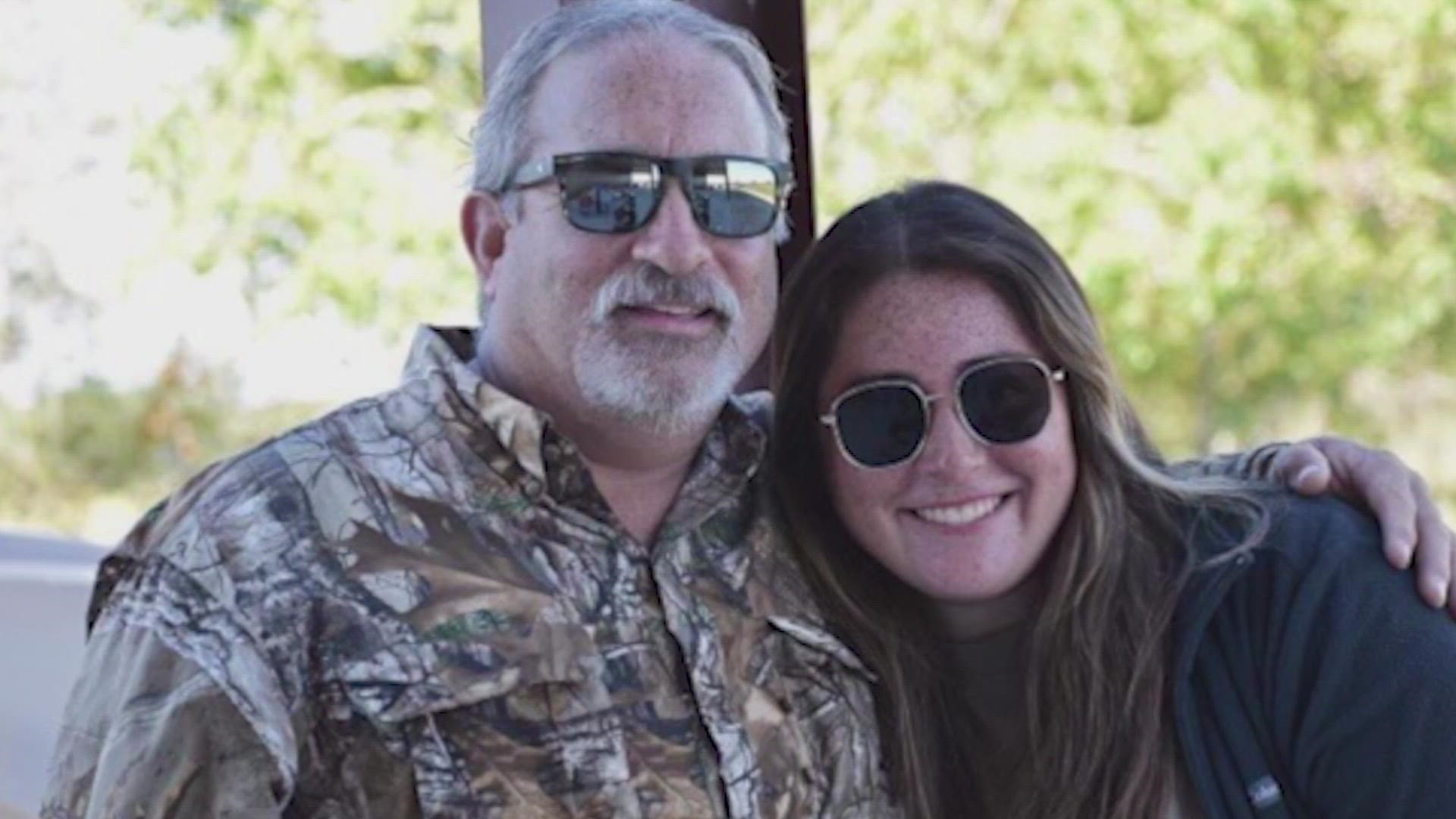PEARLAND, Texas — A Pearland family is sharing their terrifying experience after being targeted by high-tech scammers.
It's a tale of a scam that goes beyond the hardware. Voice cloning technology can be used for a lot of good, but in the wrong hands, it can do a lot of harm. The scams are aiming straight for the heart.
Last Saturday, John Bridges said he was having dinner at his Pearland home when his phone rang.
“I answer it, and it’s someone crying,” Bridges said.
"I've had an accident, daddy. Help me," the voice on the line said.
He said the voice sounded exactly like his daughter, Brittany.
Bridges said after hearing what he believed to be his daughter's plea, a man got on the phone and said, "I've got your daughter. She's in my car."
"It was terrifying," he said.
Bridges said the man demanded him to listen, and if he didn't, he might not ever see his daughter, Brittany, again. The caller told Bridges to stay on the phone, get cash and drive to a grocery store. He warned the father to not draw attention to himself.
"My mouth is dry and my heart's beating 100 miles an hour," Bridges said. "When he was telling me I would never see my daughter again, it was terrible."
Once Bridges got to the store, he was told to wire the money to Mexico, but luckily, before he could do it, Brittany had called her mother and let her know she was OK.
"I couldn't believe it. I was just, like, 'I'm OK. I am fine,'" Brittany said.
Pearland police responded to the scene. Brittany’s mother and sister had flagged them down as Bridges was driving to the store. Authorities said the caller’s number was traced to a number generated on the internet. It was a scam.
In 2020, the FTC held a workshop on voice cloning and raised the alarm about how the technology could be used and abused.
Ryan Kennedy is an associate professor of political science at the University of Houston whose focus is on the applications of artificial intelligence in public policy.
“We post videos on TikTok, on Twitter,” Kennedy said. “They’ll find examples of your speech online, or wherever they can find it, and then they will put it into a program. It can then clone that, and they can use that to get you, your voice, to say things that you didn’t actually say.”
The technology is used for good to bring voices back for people with ALS or throat cancer. It's also used in Hollywood. But the technology is getting cheaper and more accessible and can be used in crimes, too.
“One of the biggest issues is that it completely undermines the credibility of video and audio evidence, which is one of the things we consider kind of a gold standard,” Kennedy said. “Pretty soon, this voice technology is going to go from being something that involves hours of investment, to being something that’s probably going to be an app on your phone.”
Bridges was convinced the voice he heard on the other end of the phone was his daughter’s.
"It was her. ... It was her voice. I know it was," Bridges said. "I still can't really sleep at night. ... I still think about it."
Kennedy said there's software being developed to try to counter the fake voices so people like Bridges won't fall victim to these disturbing scams.
The Pearland Police Department said this is the first case of its kind that they’ve investigated. The Houston Police Department’s Major Offender’s Swindler Unit reports it hasn’t seen any of these scams in its jurisdiction.
For more information about voice cloning technology and how the FTC thinks it can be abused, click here.

